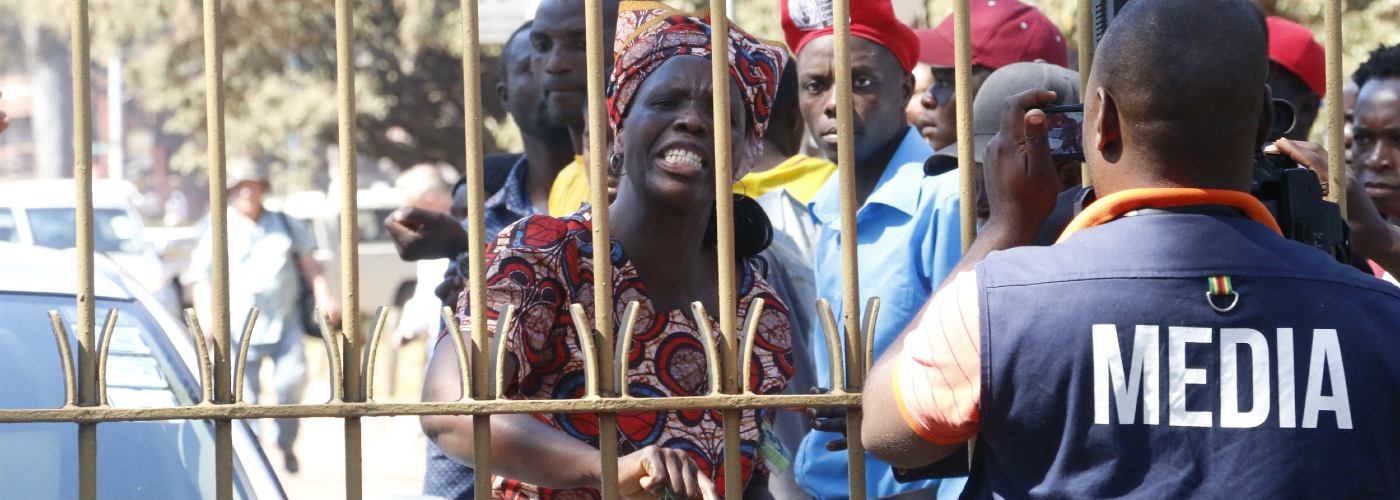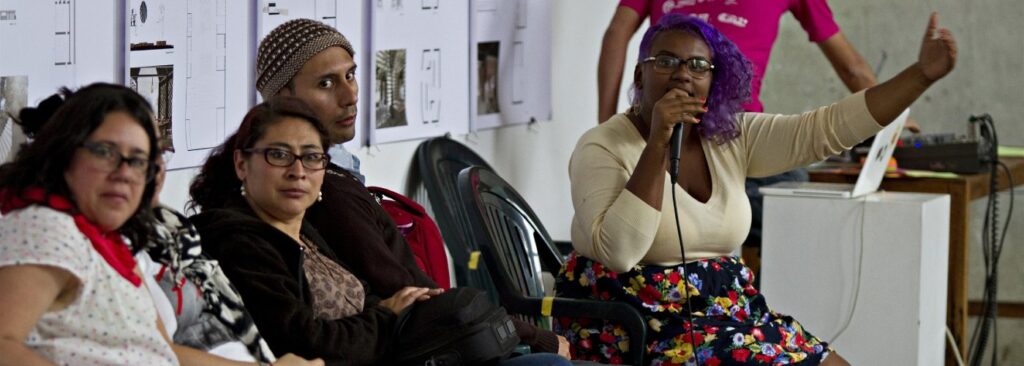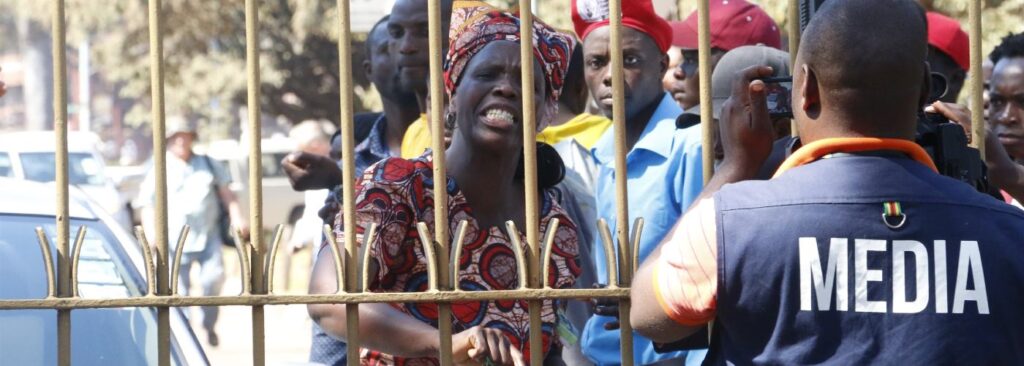Project Title: Civic Space Monitoring for Connect, Defend, Act! (CDA) Project
Location: Palestine (oPt)
Duration: 6 months
Contact Details: information, questions, or clarifications should be sent to grantsmena@hivos.org with “CDA Civic Space Monitoring” in the subject heading. Queries accepted until February 20th, 2025.
Read the full ToR here (PDF document)
Project brief
All around the world, those in power, including both autocracies and democracies, are increasingly imposing restrictions on civil society actors to freely express themselves, to protest against systemic injustices and to organize themselves to defend fundamental human rights. Digital tools and platforms carry the potential to create safer and more inclusive spaces for trust- based collaboration and access to information. But they are also shaped by digital divides and increasingly sophisticated surveillance tactics deployed by both state and non-state actors.
With support from the Government of Norway, Hivos is implementing a five-year project (2024- 2029) called ‘Connect, Defend, Act!’. The project aims to counter shrinking civic space and amplify civil society-led action in Colombia, Indonesia, Malawi and Palestine (oPt) by supporting civil society actors in their efforts to defend and expand civic space. Civil society actors and rights- engaged in this work face an array of political, institutional, legal, and societal forces actively working against their goals. Civil society actors urgently need secure and trustworthy spaces for evidence-based learning and strategizing enhanced capacity to counter digital threats, and access to funding that ensures organizational resilience and adaptability.
Project goal
Civil society Actors in Colombia, Indonesia, Malawi and Palestine (oPt) can positively influence the openness of and respond to changes in the civic space.
Project Objectives
- Promote coalition building among diverse civil society actors, including human rights defenders, rights holder-led civil society organizations, and independent media actors, grounded in civil society-led evidence gathering and knowledge production, and facilitated by context-specific communities of action.
- Contribute to safe and inclusive digital civic spaces for sustained collaboration and action among civil society actors through localized holistic digital security capacity strengthening, knowledge production, and active referral to digital protection providers.
- Increase civil society actors’ flexibility to rapidly respond to changes in civic space through organizational capacity strengthening and the provision of strategic funding for sustainable action.
The project aims to strategically support relevant actors within civil society whose work actively contributes to civic space from the perspective of different sectors and interests, particularly including groups who are marginalized within civil society. Across all activities and outcomes, the project will promote local ownership and leadership, with Hivos taking a facilitating and supporting role that emphasizes civil society actors’ agency and existing knowledge.
The project is currently in its second year of implementation, and we seek up to four partners in Palestine (oPt) to conduct civic space monitoring reports for 2025.
Civic Space Situation analysis in Palestine
The civic space in Palestine has been experiencing a significant decline1 This deterioration is primarily driven by the intensified repression on civil society organizations (CSOs), journalists, and human rights defenders (HRDs) by the Israeli Occupying Forces (IOF) and Palestinian authorities.2 The IOF has been particularly aggressive employing tactics such as harassment, imprisonment, physical violence, and deadly force against CSOs and HRDs, including raids on their offices.. For instance, in August 2022, the IOF forcefully entered and sealed the entries to the offices of seven CSOs, confiscating and damaging property. Additionally, six leading Palestinian human rights organizations were designated as “terrorist organizations” under Israel’s Counter-Terrorism Law, further restricting their operations.
Furthermore, individuals who organize or participate in peaceful protests are routinely targeted with excessive force, including live ammunition, mass arrests, and prolonged detentionThe media typically reflects the position of the state, and any independent voices are systematically targeted through raids, physical attacks or legal harassment.
The shrinking civic space is also evident online, where Palestinian voices are systematically silenced on social media platforms such as Meta (Facebook, WhatsApp, Instagram, and TikTok). During the latest genocide on Gaza that started in October 2023, content was deleted, accounts were blocked, hashtags were hidden, and content reach was reduced. Offline, Palestinians who express their discontent through protests often face violence from the IOF and its settlers as well as from the Palestinian authorities.
The occupation also imposes restrictions on the funding of CSOs. The political conditions on funding imposed by European and particularly US funders have led not only to the cessation of work by hundreds of CSOs3 but also led to increased conflicts and gaps among the civil society actors.
Efforts by CSOs and Human Rights Defenders to combat shrinking of civic space
Civil society in Palestine has largely responded reactively to the shrinking civic space, often lacking a unified, strategic approach. While many organizations work individually, there has been limited collective action through coalitions and networks.
Despite these challenges, CSOs and HRDs continue their fight for rights and freedoms through legal support for political prisoners, documentation of human rights violations, and advocacy for accountability. In the digital sphere, they amplify Palestinian voices, expose violations, and collaborate with international organizations to raise awareness and mobilize support.
While restrictions and attacks on civic space persist, Palestinian CSOs and HRDs remain resilient, actively challenging repression and advocating for their rights.
Partnership in Conducting Civic Space Monitoring
In Palestine, where freedoms are increasingly restricted, partnerships in civic space monitoring are crucial. CSOs face structural, political, and legal obstacles, struggling to push back against powerful actors. Strong partnerships enable local organizations to analyze and respond to these challenges effectively.
By fostering collaboration, these partnerships empower civil society actors to lead civic space monitoring rather than relying solely on external assessments. This approach strengthens local agency, enhances adaptability, and ensures that monitoring efforts translate into strategic action against repressive policies.
Call for Concept Notes
To support evidence-based, decision-making, planning and action by civil society actors defending and promoting civic space, Hivos will support civil society actors-led monitoring of civic space through the provision of resources and by connecting selected partners to a global community of civil society actors engaged in monitoring civic space and the enabling environment.
Monitoring partners selected to contribute to this output will regularly report back to Hivos and advise on key leverage points for action based on identified trends. In addition, the evidence and data they collect will be connected to a global monitoring system on civic space being developed in parallel to this project under the leadership of Hivos. These insights will be publicly available and can, therefore, be leveraged by other civil society actors beyond the primary target group to develop evidence-based strategies to influence the openness of civic space.
Application Deadline and Requirements
- Applicants who meet the requirements should submit a Concept Note in English, not more than 10 pages. The following documents, which serve as annexes, should be included in application (and are not part of the 10 page limit):
- Updated organization’s profile and organogram
- Organization’s proof of legal entity
- Contact details of three valid references, which could be partners, donors, and other stakeholders.
- A detailed proposed civic space monitoring methodology, including a draft work plan with a timeline
- A budget in USD for the six-month period
- Two previous similar or related reports developed by the organization
- Signed Annex A
The submission should be sent to grantsmena@hivos.org with “CDA Civic Space Monitoring” in the subject heading by Tuesday, 4th March 2025. Applications after this will not be considered. Only shortlisted candidates will be contacted.
Further Information
For further information, questions, or clarifications regarding this Call for Concept Notes, please contact grantsmena@hivos.org with “Queries – CDA Civic Space Monitoring” in the subject heading. All questions or queries to be submitted no later than Thursday, 20th February. Replies will be within 4 days from the date of inquiry submission.
Note that:
- Hivos may request further information from organizations after the submission of their concept note. Any additional information must be provided within five working days.
- The onus is on the organization to ensure that their submission is complete and meets Hivos’ requirements. Failure to comply may lead to the submission being rejected without any reason being given. Therefore, please ensure that you read this document carefully and answer all questions in full.



